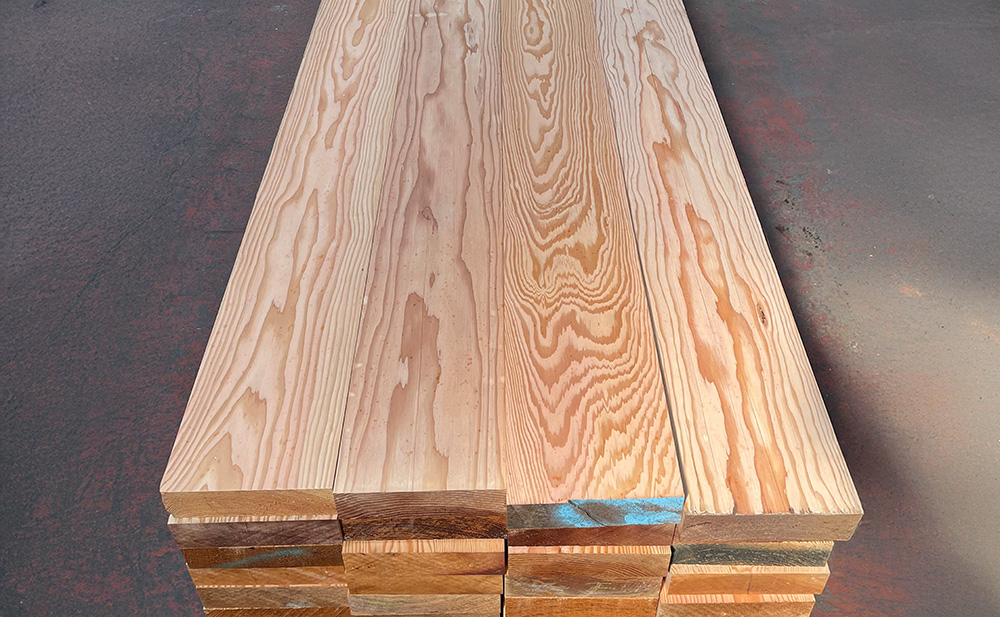Articles: What is Douglas Fir?

Douglas fir is a well-known and popular softwood in the timber trade. Reaching impressive sizes of up to 100m high and 2.4m in diameter yielding a lot of high-quality timber upon harvesting.
Although Douglas Fir is grown here in the UK, it is native to North America. We can stock both Canadian Douglas Fir and British Douglas Fir, and their differences may surprise you.
What is the difference between British Douglas fir and Canadian Douglas fir?
English Douglas Fir tends to be more knotty than its American cousin due to its growing conditions. It is also supplied freshly sawn which has its pros and cons, most notably the flexibility in cutting thanks to the sawing straight from the log producing minimal wastage, read more in this article that discusses British timbers more in depth.
Is Douglas fir a strong wood?
Yes, Douglas Fir is one of the strongest and heaviest softwoods available. Often used as a softwood alternative to oak. We can supply Douglas fir up to C24 strength grade, although British Douglas fir must be a minimum of 100mm section size and 20,000mm2. Canadian Douglas Fir C24 grade is kiln dried and stocked in clear and better grade.
What is Douglas Fir wood used for?
Douglas Fir is versatile and durable with a visually pleasing appearance so can be used in a variety of settings such as:
- Structural framing and timber beams
- External cladding, panelling and flooring
- Decking, garden structures
- Doors, gates and other joinery
- Furniture making
It's colour ranges from a reddish-brown hue to pink or creamy tones, featuring a distinguishing wild grain pattern.
Canadian Douglas Fir is often preferred where a kiln dried timber, a clear aesthetic, or a C24 grade in smaller section sizes than 100mm thickness is required.
Do you need to treat Douglas Fir
We supply our Douglas fir untreated which is suitable for use internally and externally due to its natural protection from decay and insect damage, if you’d like to preserve the colour and stop the Douglas Fir from going silver grey from the suns UV rays, you will need to surface treat your Douglas Fir on site.
For external use, kiln-dried Douglas Fir benefits from sealant treatment for improved stability. British Douglas Fir, supplied green (fresh sawn), needs to acclimate for a few months before treatment.
How long will untreated Douglas Fir last
Douglas fir is listed as a durability class 3 (moderately durable), with an expected lifespan of 10 – 15 years when installed into ground without protection.
Its actual lifespan varies based on exposure, installation, and moisture levels. Internally installed, dried Douglas Fir when maintained correctly can last over a century.
Canadian Douglas Fir is popular as a machined profile cladding as it is already kiln dried for stability and when fitted and treated, it becomes a reliable long term cladding solution.
Overall Douglas Fir is excellent value for money and where oak is out of budget, Douglas Fir offers an excellent durable, resilient and aesthetic alternative, particularly English Douglas Fir where prices are very competitive.
Products available:







 Main Menu
Main Menu

